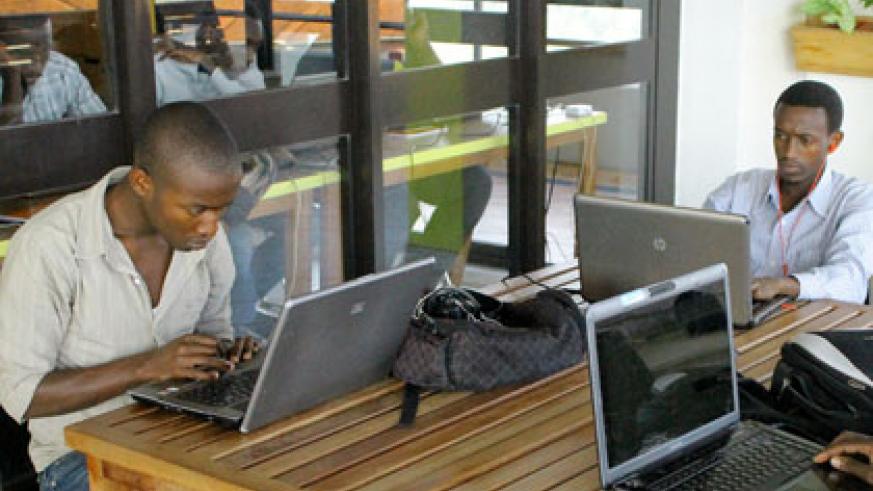

You have heard the buzzwords; Big Data, Machine Learning (ML), Natural Language Processing (NLP), Virtual Reality (VR), Augmented Reality (AR), cryptocurrencies, Financial technology (Fintech), Decentralised Finance (DeFi), Non-fungible tokens (NFTs) and, of course, the Metaverse.
Most of the technologies aforementioned are the future to the developing world but the present to the developed world. To give it more perspective, the future is already here but it’s unevenly distributed.
Rwanda has an investment and innovation-friendly policy environment which allows entrepreneurs to test their new products, business models and test the waters before establishing as taxable businesses.
A combination of a progressive regulatory environment, startup incubation centres and tax incentives encourage and make it easier for entrepreneurs to venture into new businesses.
The regulations have been aligned to the changing nature of technology to allow for sustainable innovations.
However, there’s been less value generated from new technologies, meaning Rwandan entrepreneurs and academics as well as other stakeholders need to invest more resources in drawing more value for national development.
Data from Statista indicates that Rwanda’s unemployment rate grew to 1.35 per cent in 2020, from a 0.99 per cent rate in 2019.
While the growing unemployment figures are not alarming, it is possible that the figures will keep growing as the population expands and life expectancy increases from improvements in health care and standards of living.
However, new and emerging technologies provide an alternative for the country to offset possible rises in unemployment and drive the economy.
This is how.
Establishing a software-engineers-for-export programme
With the growing demand for software engineers in Africa and the rest of the world, Rwanda can establish a programme to scout, train and produce a minimum of 500 software engineers per year.
An Andela type of programme where the recruits are provided with facilities, an enabling environment and given hands-on training by exposing them to world-class challenging projects for, at least, a year can help build a talent pool that will attract talent-hunters both locally and internationally.
It can also create forward and backward linkages in the ecosystem as the engineers start new companies, train more talent for their companies, hire others and help more others to land jobs in local and foreign companies.
If at least 50 per cent of the 500 earn a monthly income of $1,000, it means that $3 million will be generated into the economy every year. This is a direct increase in purchasing power which stimulates an increase in production to meet the proportional increase in demand.
Investing in Virtual Tourism
Virtual and Augmented reality technology can be leveraged to enhance tourists’ experiences by immersing them in locations and activities within the country without a necessity for their physical presence in such areas and involvement in the activities.
Augmented Reality is an enhancement of the real world and deploying it in tourism gives people better experiences as it captures an extensive sphere of the place under observation.
Virtual Reality being an enhancement of a fictional/imagined reality can be coupled with Augmented reality to create touristic sceneries based on actually existing sceneries in the country, thus giving viewers better experiences and satisfaction.
Imagine sitting around a table with your friends and watching elephants, lions, zebras, hippos, cheetahs, leopards walking around you. Scary? Exciting? That’s what the Metaverse is capable of. The Metaverse can give you that experience and you can, I suppose, willingly pay just to have it. I would too.
And, with good distribution, RDB can expand its reach and make more money solely relying on technology.
Selling animal Non-fungible tokens
Physical currencies and cryptocurrencies are fungible- mutually interchangeable- meaning they can be interchanged for each other in equal amounts.
Non-fungible tokens in simple terms are certificates of ownership of the digital or physical assets they represent. If, for example, RDB puts up, for sale, a digital-only artwork representing Igitego (the gorilla named by Pierre- Emerick Aubameyang) and I pay $20, 000 for it, I won’t receive a sculpture of Igitego, I’ll only receive a unique digital token, which is the NFT.
Let me limit the tech jargon here.
Now if RDB can produce NFTs for some of the wild animals such as the prominent mountain gorillas, and auction them on NFT platforms like OpenSea, market the NFTs to create awareness and buzz (that’s how it works obviously) there’s a chance for good amounts of money to be generated. That could increase the country’s foreign exchange earnings and add to the country’s reserves.
The essence of technology is to create value and those who move fast to position themselves reap enormous benefits from such novel technologies.
Rwanda can stay ahead, as it has in other sectors and industries, by leveraging new and emerging technologies to reap the benefits of the 21st Century technology developments.


